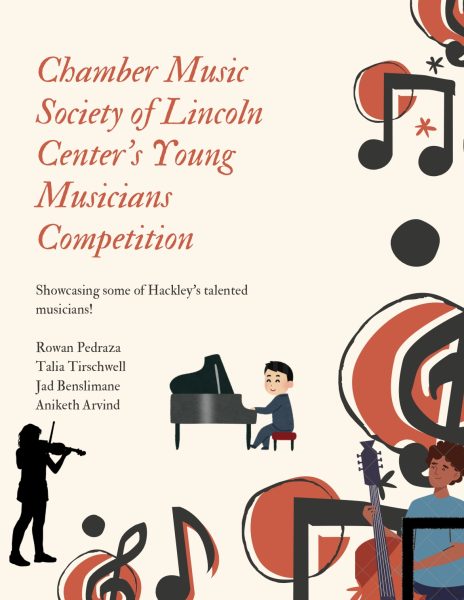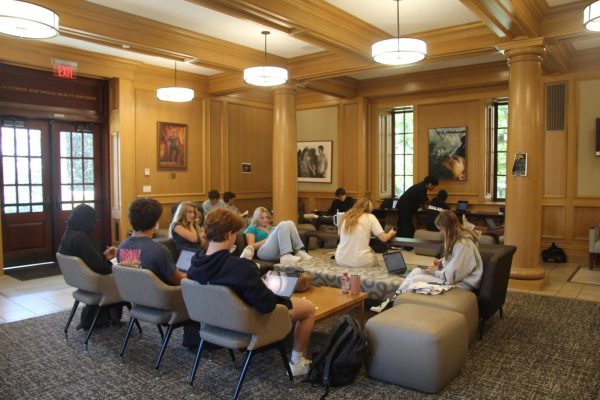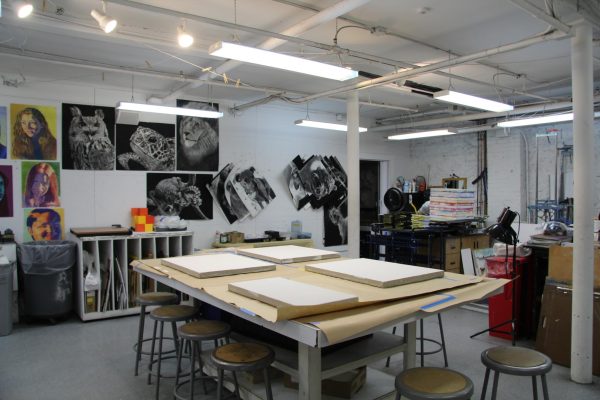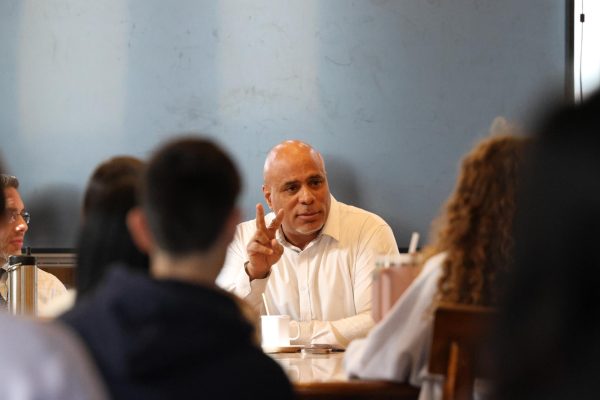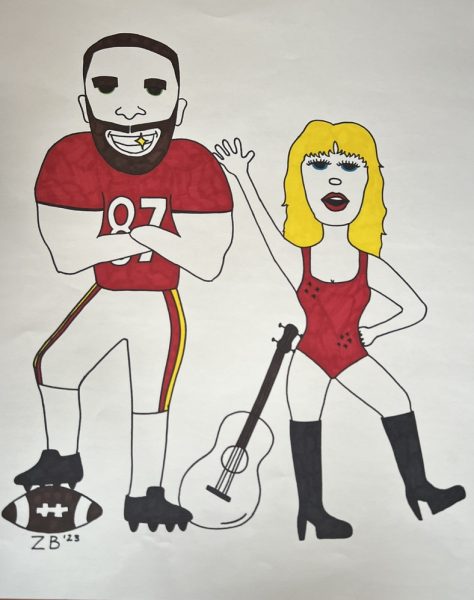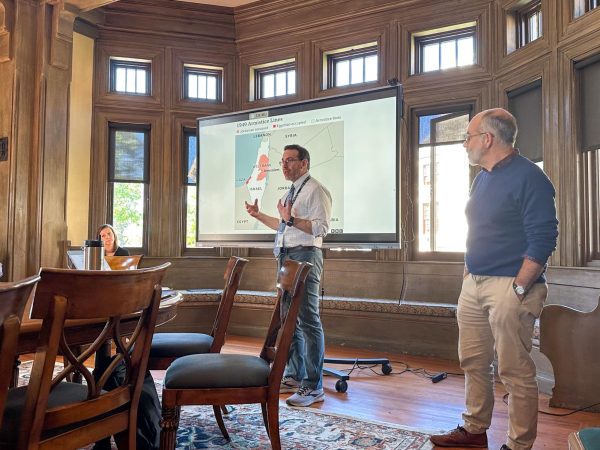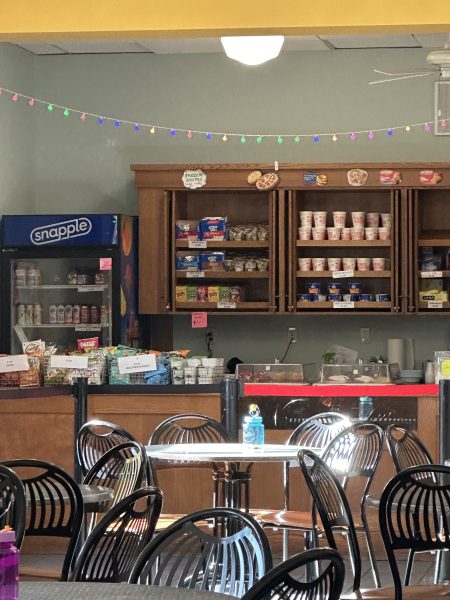Racial Conflicts Spark Conversation at Hackley
Credit: Olivia Weinberg
December 17, 2015
Protests in search of racial justice have taken college campuses by storm in the recent weeks in response to alleged administrative neglect, concerns about race relations and acceptance within the student body, and recent demonstration at the University of Missouri, as well as many other colleges nationwide.
After the University of Missouri fell under national scrutiny when multiple social media posts directing threats towards African-American students on campus were shared, movements demanding equal treatment for minorities have spread nationally, with waves of demonstrations sprawling across preeminent universities. Students at Harvard, Tufts, Yale, U.C. Berkeley, Dartmouth, and many other colleges staged protest rallies to show their solidarity with the Mizzou protesters and to highlight the racial problems in their individual schools.
While many protesting students are upset by incidents of racial inequality like Mizzou, the protests seem to be targeted towards broader institutional change within the administration and student bodies of colleges.
Senior Fesseha Michael responded positively to the protests, applauding the solidarity and active desire for change within the college communities across the country. “I think it was an expected incident. We are disillusioned with the fact that we live in a post-racial society, because we really don’t. Discrimination still exists,” said Fesseha. “One plus side is the traction the movement caught. It’s great to see how fast people want change. It’s not perfect, but it’s a symbol that as a society we are moving forward.”
I think it’s important that students and future leaders of America identify the problems that plague our society, and it’s our responsibility to bring any problems to the forefront of our attention.
— Senior Alexander Delia
Hackley’s seniors express their concerns about racism in college campuses. Senior Nina Bethel voices her worries about possibly facing discrimination as a black student. “Mizzou made me a little more scared as a black senior looking at colleges,” said Nina. “For all I know I could be going to a college that is exactly like the University of Missouri before the protests.”
Similarly, Fesseha expresses his concerns as a black man about to attend college. “I’m a little scared. It’s going to be different,” said Fesseha, “I understand the discrimination I’ve seen and experienced when it comes to the classroom or in public.” Nevertheless, he remains hopeful for a positive change in the near future. “I’m worried, but I’m not going to let it stop me from taking a step forward. How else can we change as a society?”
Recent Hackley graduate Josh Clark ‘15 and current freshman at Yale said that the protests were not just due to what happened recently, but “more so the build up and the constant and ever-present institutionalized racism that exists today.” He explained, “These events and the resulting conversations have actually pushed me to take either a women’s/les-gay/black studies course next year.”
Likewise, Russell Heller ‘15 said “the atmosphere on the Yale campus is very positive and people are not in any sort of direct conflict at all.” He agrees that the protests have provoked stimulating and important conversations, “albeit sometimes not entirely open conversations as some are afraid of abjection as a result of their personal beliefs.”
Senior Alexander Delia agrees with the protests in theory, but not necessarily in practice. “I think it’s important that students and future leaders of America identify the various problems that plague society, and it’s our responsibility to bring any problems to the forefront of our attention,” said Alexander.
Yet, Alexander takes issue with the way in which the protesters are conducting themselves. “We must also make sure that students learning environment isn’t compromised with violence and aggression. The protest that took place in the Dartmouth library, when protesters verbally harassed classmates working in the library, served as an example of how bad a protest can be, and how protests can be violent and aggressive and hostile towards innocent people.”
Sophomore Alexandra Hayward disagrees. “It’s one thing to see something via social media and another to act upon it. [Nevertheless], if people do feel threatened, it is absolutely necessary to take action towards your own — and your peers’ — betterment,” said Alexandra, “If it takes a large protest to create a change, then that’s what it will take”
Looking to the future, Alexandra will factor the communities colleges have to offer into her decisions. “I’m just a sophomore. I think it’s important to find a college with strong academics,” said Alexandra, “But looking at a college’s background and what kind of community they offer will be just as important as the academics.”

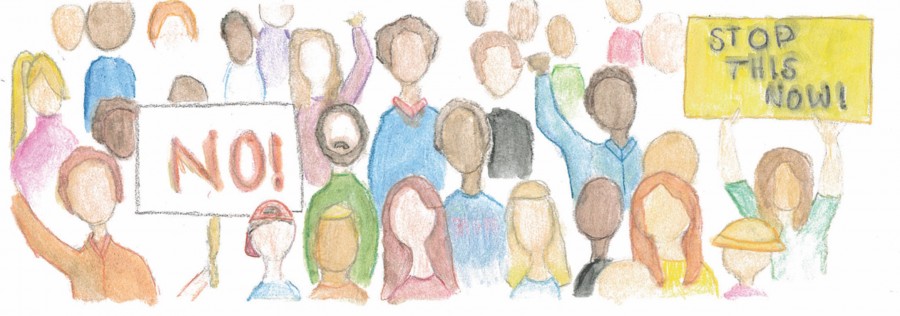
![Although the affect of COVID-19 has been on a decline with less cases and deaths allowing most of us to remain mask free, people on the Hilltop are still choosing to mask up. Personal health concerns as well as helping an elderly neighbor are reasons as to why middle school science teacher Emma Olsen still wears a mask years after the COVID-19 pandemic began. Since I am helping take care of him, you know I go over to work with his dogs, that kind of thing; I dont want to bring [the virus] home to him, Ms. Olsen said.](https://hsdial.org/wp-content/uploads/2024/03/IMG_1713-450x600.jpg)
